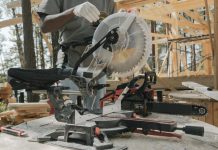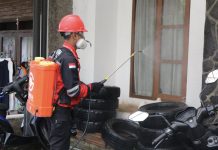Large truck accidents cause serious injuries or even fatalities to many people every year. Because of their massive size, it’s easy to see why these vehicles are more destructive. While trucks and semi-trailers do have their uses, they also pose a threat of harm and even death.
Those affected and their loved ones are dealing with catastrophic injuries, excruciating anguish, and enormous medical expenses. Yes, these changes will last and can completely change one’s life. While these vehicles serve a vital purpose, it is crucial to address their accident-causing potential for the sake of safety.

Call the police
If you have been in a truck accident, you must call the police. Notify the dispatcher that you were involved in an accident. If it is a major one, they may ask about the number of people involved to determine the appropriate response from the police and emergency medical services. Police officers will document the events of an accident as soon as they arrive at the site. This first record is crucial for further processing if you want to file a claim.
Immediate actions- legal help
The medical bills and lost wages from a truck accident can add up quickly. So, it is important to contact a truck accident lawyer without delay if you or someone you know has been through this hardship. Just like this Alpharetta Truck Accident Attorney explains, your emotions will run high immediately after the accident, and you will certainly be confused, so it is important to consult specialists who will guide you on the important steps to take. You need to seek legal help to investigate and collect reimbursement to have quality medical treatment and cover all other costs that result from the accident. Lawyers will establish the cause of the accident and identify the responsible parties. This is needed to ensure that justice is served and remedies achieved.
Get the necessary medical attention
Immediate medical attention is necessary if you or anyone else sustains injuries that may be life-threatening. Get medical assistance without delay after leaving the accident site. Your wounds may be more severe than you think, or they may become worse quickly. If you put off getting medical help for too long, your insurance company can try to downplay the severity of your injuries. Going to the doctor as soon as possible can record your injuries and provide you with a better estimate of how much treatment may cost in the future.
Take pictures of the accident site
Take as many pictures as you can if you can do so. You should take photos of:
- Every part of the accident site
- The position of the truck and other vehicles involved
- Injuries that you or anyone else have sustained
- Any damage to the vehicles
- Anything else that can clearly show what happened and what caused the accident.
Also, you should take as many notes as possible. Your memory of the accident can be hazy when you narrate the specifics later on, so you’ll need the evidence. Document any relevant details about the truck driver, responding police officer, and anyone else who was involved. Also, get the contact information of any witnesses who may have seen the events leading up to and including the incident.
Exchange information
Communicate with the other driver while you wait for the authorities to come. You should always gather all relevant information from them, including details such as their full name, address, phone number, and email address. Also, you should note the vehicle identification number and driver’s insurance policy details. Get the name, number, and address of the truck driver’s employer as well. It is important to get information from both the driver and the trucking business since the company can also be involved in the case.

Who is liable?
Many parties or entities can be held partially or fully responsible after a truck accident. Entities that share responsibility include:
- The truck driver
- The transportation firm
- The vehicle manufacturer
- A service center that maintained the truck
- A business that loaded the truck
- A third-party driver who was careless and caused the accident
Determining fault in such cases is notoriously difficult, and the involved parties will almost certainly try to pin the blame on one another.
Filling a police report
A police report is a must in many accident cases. To avoid filling a police record, the incident must have resulted in no injuries and little damage to the vehicles. However, if it was a major accident, then this report must be obtained. A truck driver or other parties involved may ask you to avoid getting this report and simply handle things privately. This is not something you should do, as you can end up in a difficult financial and legal scenario where you cannot prove you didn’t cause the accident.
Be careful what you say
After the accident, you should expect to hear from an insurance adjuster representing the at-fault driver. Do not apologize, take money, admit fault, claim you’re fine, or provide a recorded or written statement if you communicate with them. Social media is not an exception. You can badly hurt your case just by mentioning the accident and that you’re doing well. You should also refrain from discussing your injury in news publications. Someone might use everything you say online against you.
Instead, contact a truck accident lawyer before speaking with an insurance adjuster or sharing details of your accident. They can give you useful advice on how to behave, what to say, and what to keep private.
Don’t miss the deadline
You have two years from the date of the accident to initiate a lawsuit since personal injury claims are subject to a statute of limitations. Your lawyer has to gather a lot of evidence and form a solid case, and time flies by quickly. That’s why you must contact them without delay after your accident.
Victims of truck accidents often suffer life-threatening injuries and face extensive property damage to their vehicles. After going through this hardship, it is important to take proper steps to protect your legal rights. This can help you maximize your compensation and mitigate the harsh consequences of this event.












